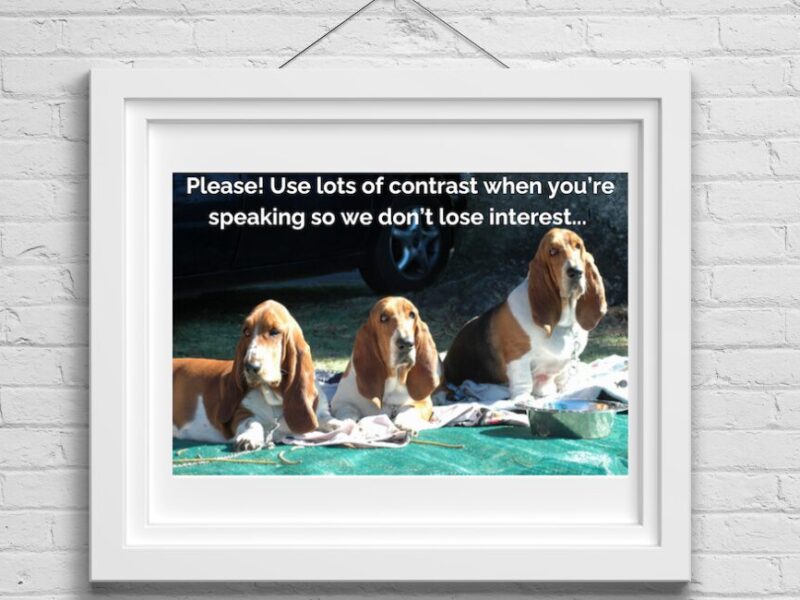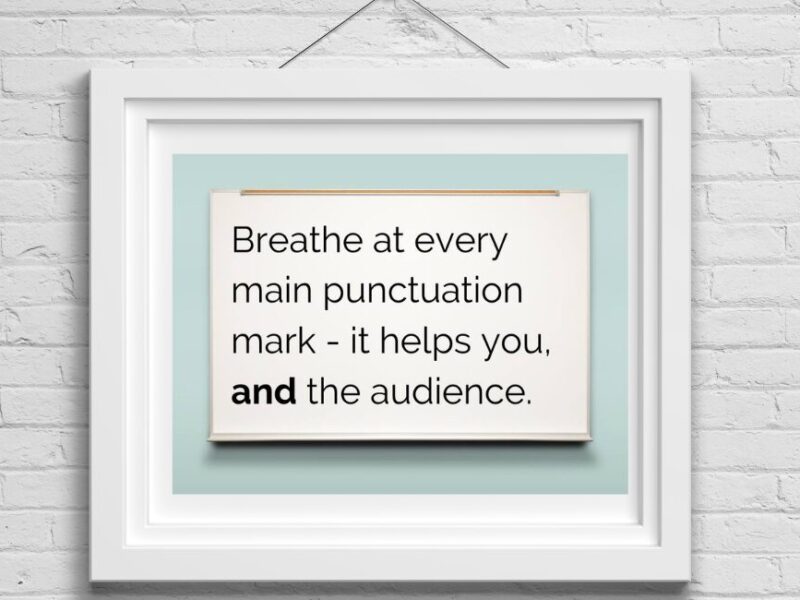If you ever prepare a script before an event – maybe you’re doing a presentation, speech, or video voiceover – you want to make sure it’s created for your audience’s ears, not their eyes!
I still come across many instances where clients speak but it doesn’t sound natural, because they sat down and wrote what they wanted to say first…then read that out exactly as written.
This often means that they push through densely packed or complicated language or sentence structure, often getting tangled up along the way.
It’s disconnecting and disconcerting for the audience. And potentially for you: you know as you’re speaking that it doesn’t sound quite right, but may not get why that is.
Once we attach to, and focus on, the words themselves, we may disconnect from the meaning behind them.
It’s like the words are a surface veneer, and getting them right is the most important thing.
Sometimes it is…but I often see clients getting hung up the “right” words, and the meaning – the connection and emotion behind them – fades away.
So, not only does the audience feel disconnected but you do too. And good speaking and good communication are all about connection.
Preparing something to be spoken conversationally can also be a real challenge if you love writing a lot more than speaking. Or if you get attached to your words and sentences and love to craft them precisely and beautifully!
If that’s you, and you find yourself contemplating sentence construction or debating which particular word will work, of course that can be ok – but it might be worth checking in on the end result, and seeing whether you’ve fallen into the word and sentence construction trap.
The trap that looks great when you read it on the screen or paper, but doesn’t work when you speak.
AI can be a culprit in this one too – and boy, am I hearing some shockers at the moment! If we don’t give AI the right cues, the result can sound incredibly unnatural and disconnected as well.
Action Step
If you like to prepare initially by seeing words on a screen, I suggest you avoid sitting and typing first. Try starting by using voice dictation e.g. in Word or Google. By doing this first, your script will be built on conversational foundations, not ‘on paper’ ones.
Wishing you meaningful connections and impactful communication!




